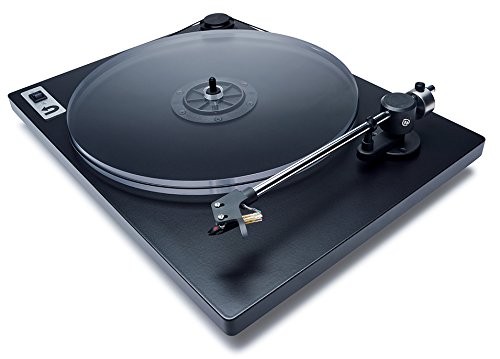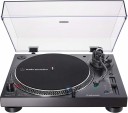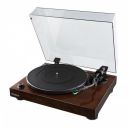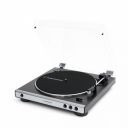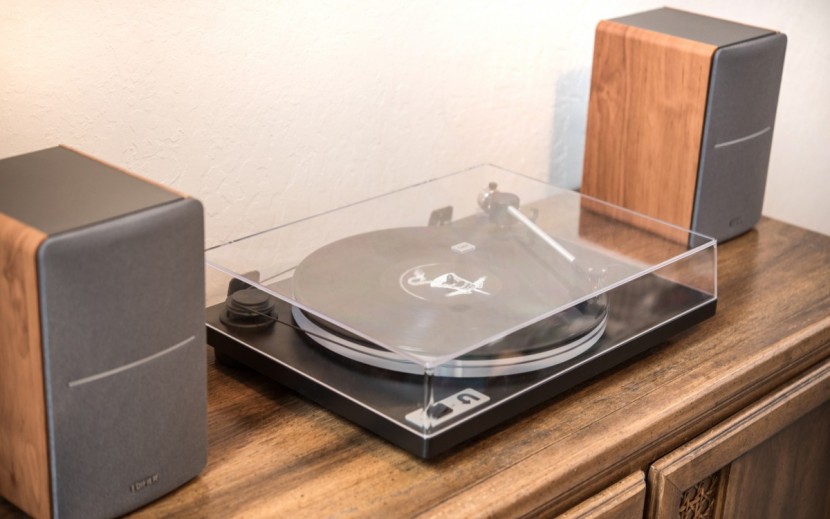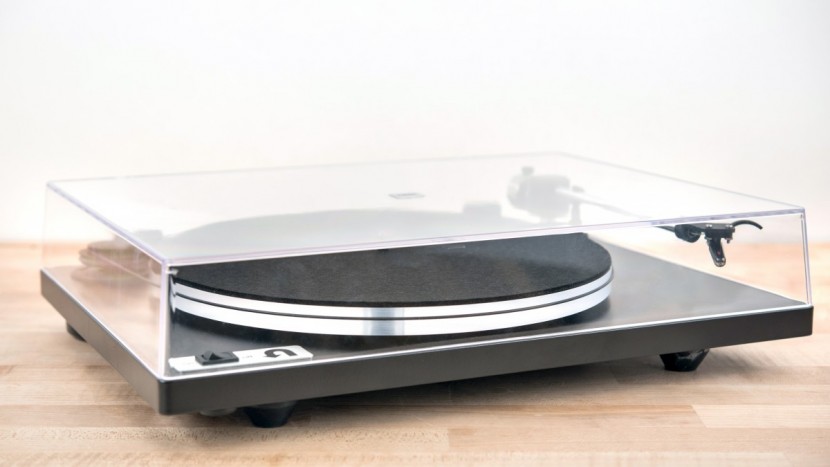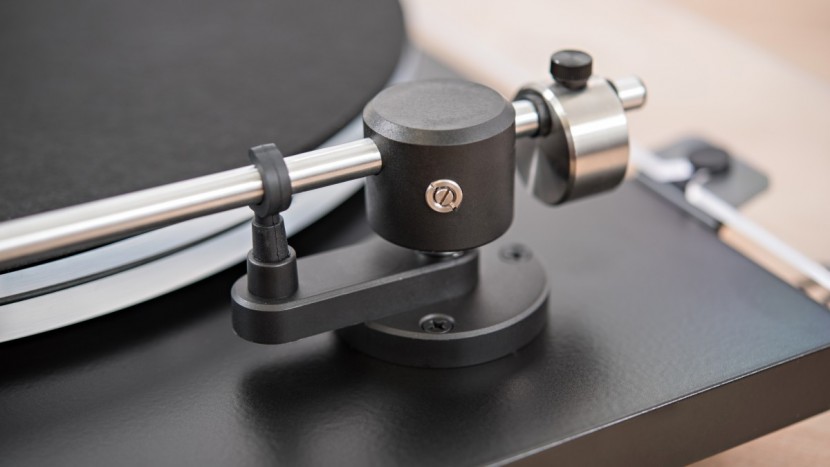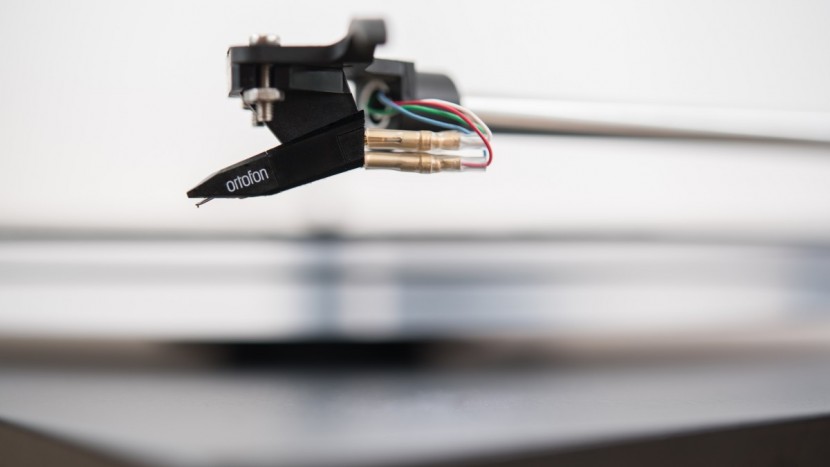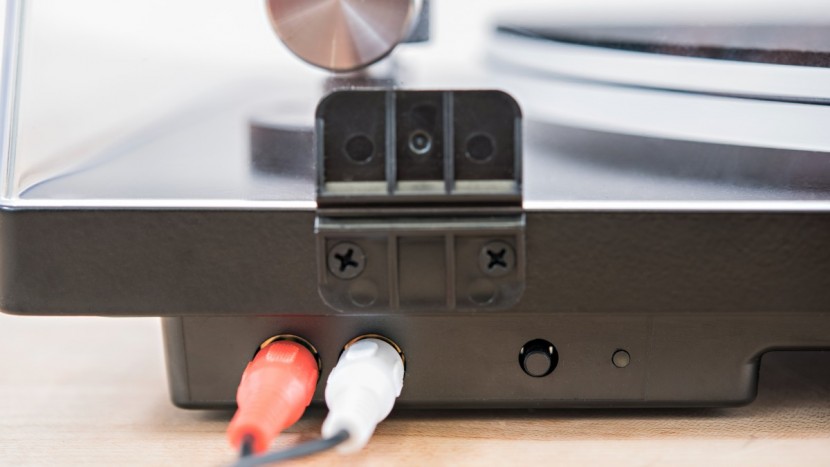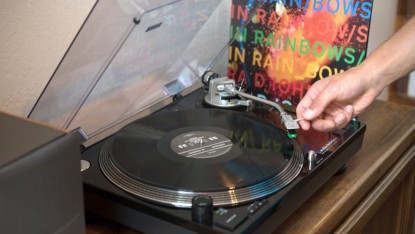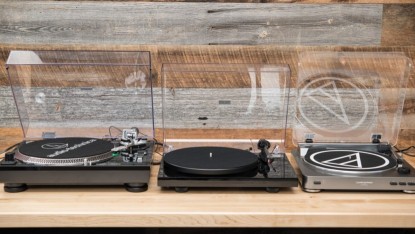U-Turn Audio Orbit Plus Review
Our Verdict
Compare to Similar Products
 This Product U-Turn Audio Orbit Plus | |||||
|---|---|---|---|---|---|
| Awards | Best Sound Quality | Best For Most People | Best Vibration Resistance | Best Bang for the Buck | |
| Price | $399 List | $600 List $599.00 at Amazon | $349 List $379.00 at Amazon | $250 List $249.99 at Amazon | $219 List $239.00 at Amazon |
Overall Score  |
|||||
| Star Rating | |||||
| Bottom Line | A good model that lacks some ease of use touches that beginners would appreciate, and is priced relatively high | Superior sound for a model in this price range, a perfect first player for discerning listeners looking to start their vinyl journey | Great sound and user friendliness make this turntable great for almost anyone | Great for those that want good sound and something that won't skip if the vinyl inspires some dancing | The best sound per dollar value of any of the models we tested, and has user-friendly features to boot |
| Rating Categories | U-Turn Audio Orbit... | Pro-Ject Debut Carbon | Audio-Technica AT-L... | Fluance RT81 | Audio-Technica AT-L... |
| Sound Quality (40%) | |||||
| Component Quality (25%) | |||||
| User Friendliness (25%) | |||||
| Vibration Resistance (10%) | |||||
| Specifications | U-Turn Audio Orbit... | Pro-Ject Debut Carbon | Audio-Technica AT-L... | Fluance RT81 | Audio-Technica AT-L... |
| Cartridge | Ortofon OM 5E | Ortofon 2M Red | Audio Technica AT95E | Audio Technica AT95E | Audio Technica ATN3600L |
| Drive Method | Belt | Belt | Direct | Belt | Belt |
| USB Compatibility | No | No | Yes | No | Yes |
| Operation | Manual | Manual | Manual | Fully Automatic | Fully Automatic |
| Platter Material | Acrylic | Aluminum | Aluminum | Aluminum | Aluminum |
| Mat Material | Felt | Felt | Felt | Rubber | Felt |
Our Analysis and Test Results
The Orbit Plus is a good all around turntable, but its relatively high price makes it a poor value when compared to other models.
The Orbit Plus did quite well in our overall testing, as you can see in the table above. In the sections below we discuss all the strengths and shortcomings we discovered while testing the Orbit.
Sound Quality
The Orbit Plus earned a 7 out of 10 in our sound quality testing, putting it well above average but just behind the top performers. Its overall clarity was on par with that of the top scoring Audio Technica AT-LP120XUSB and the Pro-Ject Debut Carbon. The Orit's dynamic range was a bit compressed when compared to these top models, but it was still wide enough to lend loud notes the emotional resonance they deserve. The one major complaint we had about the Orbit's sound was the fact that there was a slight static noise in the background of everything. This was not at all noticeable at low volumes, but when we cranked the music loud it was conspicuous but not overpowering. No matter how much we adjusted the tonearm and cartridge we could not get this distortion to go away. Overall we didn't feel that it was a huge drawback, but if you like to enjoy your music at a high volume it may become annoying.
Component Quality
The Orbit Plus is quite well constructed, earning a high score of 8 out of 10 in our component quality testing. This put it just behind the top score of 9. Our favorite part of its build is the heavy acrylic platter, which goes a long way towards reducing vibration from the motor. Even the high end Audio Technica AT-LP120XUSB and the Pro-Ject Debut Carbon have aluminum platters that are noticeably lighter. The motor is separate from the platter and uses a belt drive, also to reduce vibration from making its way into the record. The metal tonearm is quite stiff and well constructed, and the Ortofon OM 5E cartridge gets the job done. Overall the Orbit's construction quality is commensurate with its higher price, with only the carbon fiber tonearm of the Pro-Ject Debut Carbon being a noticeable improvement over any of the Orbit's components.
User Friendliness
This was the worst metric for the Orbit as it earned a mediocre 5 out of 10. This is largely due to its simplistic design which places more of an onus on the user. The Orbit lacks any sort of cueing lever, which means you must pick up the tonearm, move it into the right position and gently rest it onto the record yourself. While this isn't particularly difficult, it can be a bit nerve racking for a newcomer. The other models in this price range, the Audio Technica AT-LP120XUSB and the Pro-Ject Debut Carbon, both have cue levers that somewhat automate the process of actually putting the needle down onto the record. We found this to be much easier than having to lower the tonearm and needle by hand. Some models, like the Audio-Technica AT-LP3BK, completely automate the cueing process, so you can get a record playing at the push of a button.
The Orbit also forces you to manually select the speed at which the platter turns, whereas most models automatically detect whether a record is a 33 or 45 and adjust themselves accordingly. Finally, the tonearm is balanced with a sliding weight, making it much harder to make fine adjustments than with models that use threaded weights that can be moved very slightly by turning them.
Vibration Resistance
The Orbit was above average in our vibration resistance testing, earning a score of 7 out of 10. It stood up to all but the hardest of bumps to the table it was sitting on without skipping. While the Fluance RT81 was even better in that regard, we'd still approve the Orbit for raucous dance parties.
Value
This is where the Orbit Plus loses a lot of merit. It is significantly more expensive than the better sounding and easier-to-use Audio-Technica AT-LP120XUSB. This makes it a poor overall value unless you just really fall in love with its aesthetics.
Conclusion
The U-Turn Orbit Plus is a great overall turntable that is held back by a relatively high list price. If you can find it on sale it's great, but otherwise the Audio-Technica AT-LP120XUSB would be a much better choice for most people.


